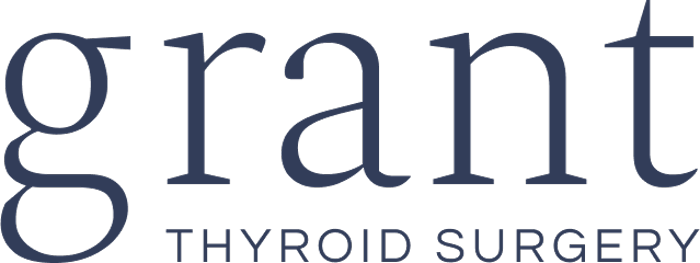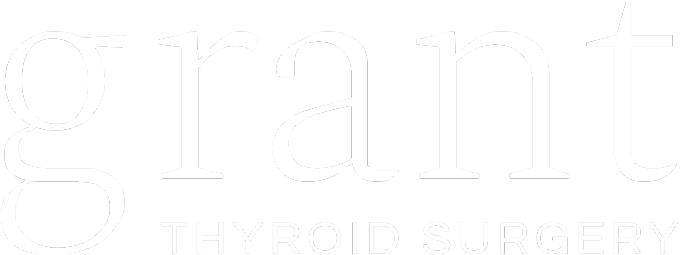Parotidectomy is a specialized surgical procedure to remove tumors or abnormal growths from the parotid gland, the largest salivary gland. At Grant Thyroid Surgery, Dr. David Grant—an expert in head and neck surgery—offers precision care and compassionate expertise to treat both benign and malignant parotid conditions with optimal outcomes. Dr. Grant provides expert parotidectomy in Fayetteville for patients with both benign and malignant tumors.
What Is Parotidectomy?
Parotidectomy is a surgical procedure to remove part or all of the parotid gland, which is the largest of the salivary glands located just in front of your ear. It is most commonly performed to treat tumors—whether benign or malignant—but may also be necessary for chronic infections or other abnormalities. The procedure requires careful dissection to preserve the facial nerve that runs directly through the gland. Dr. Grant uses advanced surgical techniques to ensure safe and effective removal with minimal complications.

Potential Reasons to Consider Parotidectomy:
- Presence of a benign parotid gland tumor causing discomfort or disfigurement
- Diagnosis of a malignant parotid tumor requiring removal
- Rapid growth of a parotid mass raising suspicion for cancer
- Chronic parotid gland infections unresponsive to medical treatment
- Recurrent swelling or drainage from the parotid duct
- Suspicious imaging findings indicating abnormal tissue in the gland
- Facial nerve dysfunction linked to a parotid mass
Prevent Facial Weakness or Paralysis
The facial nerve that runs directly through the parotid gland controls the muscles responsible for facial expressions. When tumors or growths develop within the gland, they can compress or invade this delicate nerve, potentially causing facial weakness, twitching, or even paralysis. A parotidectomy helps remove the abnormal tissue while carefully preserving the nerve. Early surgical intervention reduces the risk of permanent nerve damage, especially when the procedure is done before the tumor becomes large or invasive.
Benefits of Parotidectomy:
- Removal of benign or malignant parotid tumors
- Preservation of facial nerve function when performed early
- Relief from chronic pain, swelling, or infection
- Improved facial symmetry and appearance in cases of large masses
- Prevention of tumor progression or malignant transformation
- Precise pathological diagnosis through gland removal
- Reduction in recurrence risk of recurrent parotid issues

How Is Parotidectomy in Fayetteville Performed?
During a parotidectomy, you’ll receive general anesthesia to ensure you’re fully asleep. Dr. Grant will make a curved incision in front of your ear, extending into your neck, typically about 6-10 cm in length. He carefully separates the tissues to identify and protect your facial nerve. The affected portion of your parotid gland is then removed, either partially or completely, depending on the condition. The incision is closed with fine sutures to promote healing and minimize scarring, and a drain may be placed temporarily.
Recovery After Parotidectomy
After your parotidectomy in Fayetteville, you’ll typically stay in the hospital for one night for monitoring. A small drain may be placed near the incision to prevent fluid buildup and is removed the next day. You may experience numbness or weakness in your face, which often improves with time. Most patients return to normal activities within 1-2 weeks. Dr. Grant will provide post-operative instructions to support healing, manage discomfort, and monitor your facial nerve function during recovery. Follow-ups are essential to ensure optimal outcomes.
Parotidectomy FAQs
What Is the Difference Between Superficial and Total Parotidectomy?
A superficial parotidectomy removes only the outer portion of the gland, often sufficient for benign tumors. A total parotidectomy involves removing both the superficial and deep lobes, typically necessary for malignant tumors or extensive disease. Dr. Grant will determine the best parotidectomy approach based on your diagnosis.
Will I Have a Visible Scar After Parotidectomy?
Yes, you may have a scar in front of your ear and along your jawline or neck, depending on the extent of the surgery. Dr. Grant uses meticulous closure techniques to minimize scarring, and over time, most incisions fade significantly.
Is Facial Nerve Damage Common?
Facial nerve injury is a known risk, as the nerve runs through the parotid gland. However, in the hands of a skilled surgeon like Dr. Grant, the risk is minimized. Temporary weakness may occur but usually resolves within weeks to months. Permanent nerve damage is rare.

Schedule Your Consultation With Dr. Grant
Dr. David Grant is a fellowship-trained head and neck surgeon with extensive expertise in parotid surgery. At Grant Thyroid Surgery, we offer compassionate, personalized care and expert surgical management for benign and malignant parotid conditions. From diagnosis through recovery, Dr. Grant ensures every aspect of your care is coordinated and precise. If you’re experiencing a parotid mass or related symptoms, schedule a consultation today to explore whether parotidectomy with Dr. Grant is the right next step for you.

